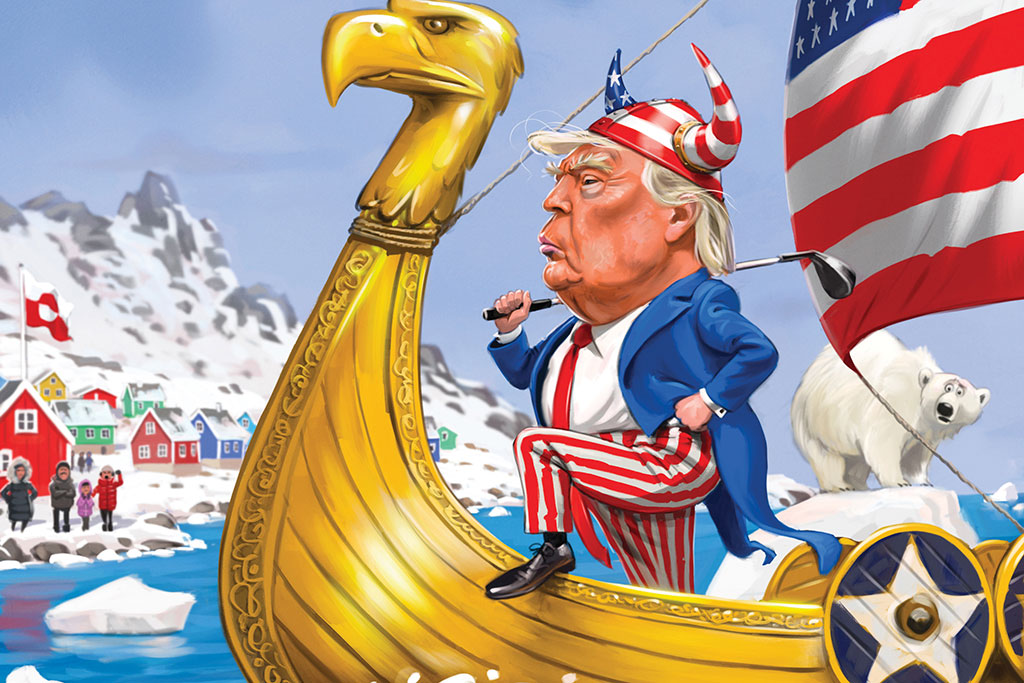In UK stocks, the market has chucked us a bone – we should grab it
UK stocks are trading at their biggest discount to global equities in 40 years. You should probably be looking to buy, says Merryn Somerset Webb.

Get the latest financial news, insights and expert analysis from our award-winning MoneyWeek team, to help you understand what really matters when it comes to your finances.
You are now subscribed
Your newsletter sign-up was successful
Want to add more newsletters?

Twice daily
MoneyWeek
Get the latest financial news, insights and expert analysis from our award-winning MoneyWeek team, to help you understand what really matters when it comes to your finances.

Four times a week
Look After My Bills
Sign up to our free money-saving newsletter, filled with the latest news and expert advice to help you find the best tips and deals for managing your bills. Start saving today!
Everyone wants the same thing out of an equity investment: the kind of long-term sustainable earnings growth that eventually turns into long-term income. The problem is that if everyone wants the same thing, that thing is rarely cheap. But every now and then the markets chuck us a bone in the form of a group of perfectly good stocks going cheap. Right now the UK might be such a bone.
UK stocks are trading at their biggest discount to global equities in 40 years. This is partly to do with the composition of the market (lots of banks) but possibly more to do with the disappearance of international investors fed up with the confusions of Brexit. So the general expectation is that if a deal appears, the market might rise. If not, it will not. Leaving aside that there is no longer any such thing as no deal (lots of side deals have already been made) we wonder if this is really so. Perhaps what matters more than the final decision is just that one is made – that all these years of uncertainty come to an end (or at least are perceived as having come to an end). Markets like certainty (in most cases) so deal or no deal, once we know, the UK market might well rise regardless.
But whatever happens, there are UK stocks you should probably be looking at anyway. As Max King notes in our cover story this week, an awful lot of our companies have been all but destroyed by our government’s rolling lockdown policies. Not all will survive. But those that do could be very interesting indeed. If post-lockdown there are fewer holiday companies than before, lack of competition will make the ones remaining not just survivors, but winners. The same goes for hospitality firms, cinemas, airlines and possibly even retailers. Which are which?
MoneyWeek
Subscribe to MoneyWeek today and get your first six magazine issues absolutely FREE

Sign up to Money Morning
Don't miss the latest investment and personal finances news, market analysis, plus money-saving tips with our free twice-daily newsletter
Don't miss the latest investment and personal finances news, market analysis, plus money-saving tips with our free twice-daily newsletter
Note that MoneyWeek contributors Max King and Cris Sholto Heaton are interested in the oil majors. I am too. Some investors refuse to hold them for environmental reasons. This is a mistake. They are cheap and will throw off cash for many decades. Right now, listed as they are on public markets, they are heavily scrutinised and held publicly accountable. If they stay this cheap for much longer, that might change. There’s an awful lot of private cash out there that cares less about these things than you think you do – and could remove them from public markets. Don’t allow a sense of do-goodery to stop you from looking at miners either. As James McKeigue points out, you can’t have a green new deal (or an electric car market boom) without a good few very large copper mines.
On the subject of avoiding investments for moral reasons, China might not be your political cup of tea (for good reason). But it’s the only major global economy likely to end this year with a higher GDP than it started it with. It is also rather more than the low-quality goods exporter too many still think of it as. Think tech powerhouse. You can’t ignore this market – but you can invest in it via a fund manager who focuses on the behaviour of individual companies rather than governments. More on this in our latest podcast.
Finally, don’t forget the small stuff. Watch your domestic bills (working from home means heating at home) and don’t get fleeced on pension fees. There’s no point investing well if you waste the proceeds.
Get the latest financial news, insights and expert analysis from our award-winning MoneyWeek team, to help you understand what really matters when it comes to your finances.

-
 Average UK house price reaches £300,000 for first time, Halifax says
Average UK house price reaches £300,000 for first time, Halifax saysWhile the average house price has topped £300k, regional disparities still remain, Halifax finds.
-
 Barings Emerging Europe trust bounces back from Russia woes
Barings Emerging Europe trust bounces back from Russia woesBarings Emerging Europe trust has added the Middle East and Africa to its mandate, delivering a strong recovery, says Max King
-
 How a dovish Federal Reserve could affect you
How a dovish Federal Reserve could affect youTrump’s pick for the US Federal Reserve is not so much of a yes-man as his rival, but interest rates will still come down quickly, says Cris Sholto Heaton
-
 New Federal Reserve chair Kevin Warsh has his work cut out
New Federal Reserve chair Kevin Warsh has his work cut outOpinion Kevin Warsh must make it clear that he, not Trump, is in charge at the Fed. If he doesn't, the US dollar and Treasury bills sell-off will start all over again
-
 How Canada's Mark Carney is taking on Donald Trump
How Canada's Mark Carney is taking on Donald TrumpCanada has been in Donald Trump’s crosshairs ever since he took power and, under PM Mark Carney, is seeking strategies to cope and thrive. How’s he doing?
-
 Rachel Reeves is rediscovering the Laffer curve
Rachel Reeves is rediscovering the Laffer curveOpinion If you keep raising taxes, at some point, you start to bring in less revenue. Rachel Reeves has shown the way, says Matthew Lynn
-
 The enshittification of the internet and what it means for us
The enshittification of the internet and what it means for usWhy do transformative digital technologies start out as useful tools but then gradually get worse and worse? There is a reason for it – but is there a way out?
-
 What turns a stock market crash into a financial crisis?
What turns a stock market crash into a financial crisis?Opinion Professor Linda Yueh's popular book on major stock market crashes misses key lessons, says Max King
-
 ISA reforms will destroy the last relic of the Thatcher era
ISA reforms will destroy the last relic of the Thatcher eraOpinion With the ISA under attack, the Labour government has now started to destroy the last relic of the Thatcher era, returning the economy to the dysfunctional 1970s
-
 Why does Trump want Greenland?
Why does Trump want Greenland?The US wants to annex Greenland as it increasingly sees the world in terms of 19th-century Great Power politics and wants to secure crucial national interests